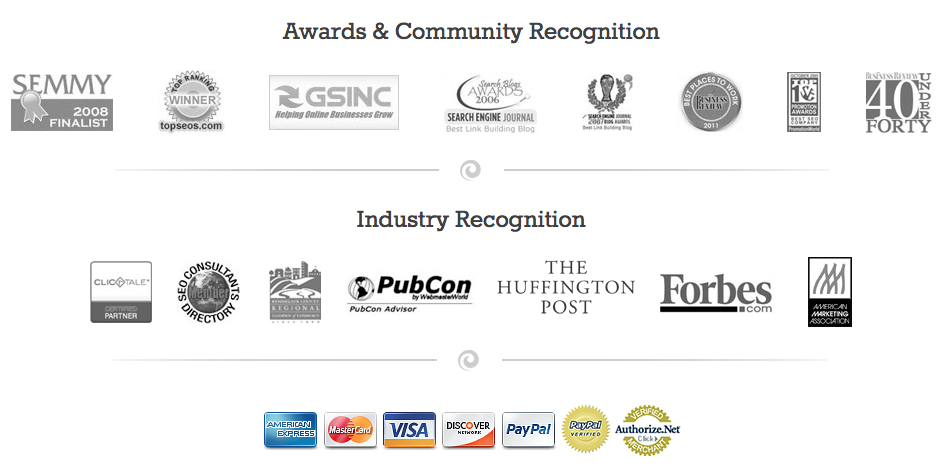Drug Detox Orange County
Drug Detoxification Process
Drug addiction is a menace that has ruined many lives due to the psychological and physical changes on the human body caused by the addictive substances. Some drug addicts lack to understand the inevitability of change and thus lose their lives under the drug addiction consequences. However, those who find the error in their ways begin their journey to recovery with the drug detoxification process.
This is not the actual treatment since it hardly solves the social, cognitive, emotional, and psychological problems associated with drug addiction. Therefore, more intervention is essential after completion of the process.
Since drug addiction appears to be a multilayered psychosocial phenomenon, do not be surprised by the complexity of the detoxification process. This is the reason why addicts have a rough time quitting the addictive substances on their own, while others bail out in the middle of the process despite professional intervention.
Drug detoxification process involves a series of interventions that work towards the removal of the addictive substance toxins from your body, while managing the withdrawal symptoms. Therefore, physiological healing is the ultimate goal of the multiple detox programs. However, it is important to understand that professionals must monitor this process since your body experiences shock after lacking the addictive substances. This shock is painful and could be dangerous if extreme.
The risks associated with quitting without advice or supervision include needless uncomfortable withdrawal, relapse risk increase, overdose risks from relapse and death.
Importance Of Drug Detoxification
As mentioned above, continued consumption of alcohol or other drugs makes your body physically dependent on the elements. Therefore, abruptly quitting could lead to life threatening situations. Hence the detoxification program assists in easing the discomfort of the withdrawal symptoms.
Additionally, it helps in managing the serious medical issues that may arise due to quitting and offers a smooth path towards change after discontinuation of drug consumption. Therefore, a successful detox period lowers the risks of drug use continuation or the relapse temptation.
Drugs Requiring Detoxification
Various drugs have different withdrawal symptoms, and thus require strict supervision during detoxification. They include barbiturates, alcohol and benzodiazepines like xanax, valium and Ativan. Others that could cause relapse include opiates like heroin, and stimulants like methamphetamine, cocaine, Ritalin and Adderall.
Detox Process
The Lighthouse Treatment Center detox in Orange County recommends the use of three essential steps to fully detoxify the human body. They are namely; evaluation, stabilization and treatment transition. By the end of these steps, you should be ready to transition into a recovery plan.
-
Evaluation
For the medical professionals to offer an effective treatment plan, they must first conduct a diagnosis to assess your addiction. This phase not only identifies the addiction and level of use but also determines the complications, psychological conditions or medical issues taking place in your body, alongside the drug abuse.
The activities involved in the evaluation stage are such as blood tests, your social situation assessment, screening for co-occurring physical and mental conditions, your psychological and medical comprehensive assessment and withdrawal severity risk assessment and need for supervision.
-
Stabilization
The stabilization phase marks the beginning of withdrawal from drugs. It involves psychosocial and medical processes that help you through withdrawal and acute intoxication, with the goal of attaining a drug-free state.
The procedure followed in the stabilization phase involves, medication to lessen withdrawal symptoms, consumption of a proper diet and nutrition, getting familiarized with expectations regarding treatment and recovery and inclusion of family and friends where appropriate.
Withdrawal Symptoms
Various factors influence the intensity of withdrawal symptoms, which also vary depending on the classes of drugs. They include:
-
Length of addiction- the daily usage of drugs for a lengthy period leads to severe withdrawal symptoms as well as high tolerance levels.
-
Existence of co-occurring mental and physical disorders- if you are suffering from a physical condition like chronic pain or mental health disorder like anxiety and depression, the symptoms may amplify as a result of withdrawal, causing distress.
-
Mixture of drugs abused- combining drugs with alcohol creates a unique set of symptoms that could exacerbate each other.
The common withdrawal symptoms among the majority of the drugs are sleep and mood disturbances, physical issues and cravings. During mood disturbances, you may experience irritability, mood swings and agitation. During sleep disturbances, you are unable to sleep even when fatigued.
The physical issues that you may experience include tremors, chills, flu-like symptoms like vomiting, headache, nausea and running nose and sweating. Due to cravings, you may feel the need to access the drug of choice just to escape the withdrawal symptoms.
Withdrawal Symptoms According To Different Drugs
Benzodiazepines and alcohol share similar symptoms since they have similar action mechanisms. They include, hallucinations, anxiety, tremors, agitation and seizures.
Opioids, which include painkillers and heroin cause gastrointestinal distress, bone and joint pain, muscles aches and increased sensitivity to pain.
Stimulants, which include methamphetamines and cocaine, cause withdrawal that seems to cause mental health complications like suicidal behaviors and thoughts, as well as depression.
Unfortunately, the majority of marijuana users do not believe that it is addictive. The truth of the matter is that it is very addictive and further causes withdrawal symptoms like depression, aggression, anxiety and physical symptoms like stomach pain, sweating, fever and sweating.
Synthetic cathinones, often referred to as bath salts also produce unpleasant symptoms as you go through the detoxification process. They are namely; depression, paranoia, sleep disturbances and tremors. Ketamine as well seems to cause anxiety and depression.
After attaining a balanced state whereby thoughts are stable, you begin to acknowledge and recognize the addiction. This part opens the pathway to recovery treatment, which requires the user’s role.
-
Treatment Transition
In this treatment transition stage, you receive preparation to indulge in substance abuse treatment. According to several reports, the majority of addicts refuse to seek further treatment. Regardless of the factors that may cause this decision, it is essential to push through with the treatment for full recovery.
Types Of Drug Detox
Drug detox is of many types. It all depends on the spectrum of withdrawal symptoms that you experience. The majority of these withdrawal symptoms are not physical, but psychological. In cases where you have severe to extreme symptoms, professionals may opt to use rapid detox.
In rapid detox, the professionals place you under anesthesia, causing you to sleep throughout the process and thus feel no pain. Despite that this method speeds up the detox process, it could cause death.
Other types of detox include:
Outpatient Detox
Outpatient detox takes place in outpatient detox clinics. Basically, you follow an outpatient program whereby you go to the facility daily to acquire medication. It could also include monthly visits to obtain the doctor’s prescription.
This approach is best for persons with less severe addiction cases. It also favors persons with money challenges since it is by far less expensive and allows you to stay committed to your home and work. It is advisable to enroll into a program regarding outpatient addiction treatment while undergoing outpatient detox. It goes a long way in addressing issues like cravings and gives you the opportunity to have additional support.
Advantages Of Outpatient Detox
As mentioned earlier, outpatient detox hardly cost much, and therefore, is pocket friendly. Additionally, it is flexible with your schedule.
Disadvantages Of Outpatient Detox
When out there with less supervision, you are at a higher risk of relapsing. You are also exposed to the same environmental factor that caused your addiction, and thus you are exposed to triggers and worse, access to the drug of choice.
Additionally, this approach faces difficulties in safely managing you during the acute substance detox period. If the symptoms are too much to bare, you may end up discontinuing the process.
Inpatient Detox
Inpatient detox, also known as residential detox, is the most recommended by health professionals. You can access inpatient detox in areas like hospitals, medical detox centers, and dual-diagnosis and residential rehab treatment facilities.
Advantages Of Inpatient Detox
Studies by multiple scholars indicate that inpatient is the most effective method of treatment for you. It gives you access to the staff’s quality care and support, which is available on a 24 hour basis, every day. Under inpatient, the medical professionals are able to closely monitor you and offer treatment in case medical conditions arise, or if emergencies arise.
Additionally, while admitted in these facilities, you are far away from the environment that caused your addiction. Therefore, this approach reduces the possibility of triggers and relapse. After the detox program, you may also have the privilege to receive continued care.
Disadvantages Of Inpatient Detox
Despite all the above advantages, inpatient detox is very expensive due to the special care that you have access to. It also requires you to leave your home and work responsibilities to live in the treatment facility and thus is not flexible with your schedule.
Other Types Of Detox
Opioid Detox
The Food and Drug Administration recommends and approves the use of opioid detox in the treatment of opioid addiction. It is different from the above detox options as it involves new medications that work best with different approaches to opioid detox treatment. Opioid detox specifically requires inpatient care, due to opium discomfort and for safety purposes.
Medications Used
Professionals use various medications to get you to a balanced state, where you no longer depend on drugs. They are known to assist in mitigating cravings, as they address changes taking place in the brain. Some mimic the addictive drug actions inside the brain , thus save you the agony of the withdrawal symptoms.
Some medications are in the form of holistic programs, which combine non-traditional therapies. They include biofeedback, yoga and meditation, exercise, acupuncture, healthy nutrition and creative arts therapies.
The rest of the consumed drugs highly depend on the addiction. They are as follows;
Alcohol
In the treatment of alcohol addiction, medical professionals use a variety of drugs. Among them are Lorzapam (Ativan), Benzodiazepines: Diazepam (Valium), Chlordiazepoxide (Librium) and Barbiturates.
After the alcohol detox period is complete, you may begin to attend addiction treatment as you stabilize. During this period, professionals may prescribe disulfiram, a drug concerned about relapse. It causes some negative effects if you drink alcohol while under this medication.
These effects include hyperventilation, sweating, vertigo, nausea, palpitations and blurred vision. As a result of these unwanted side effects, the drug is advantageous since it discourages drinking and help patients control themselves while around alcohol.
However, disulfiram is disadvantageous since it hardly decreases alcohol cravings or normalize brain function. It is unsafe for liver damage patients and could be useless if you are unmotivated to quit drinking. Additionally, it has side effects like delirium, liver damage, psychosis and peripheral nerve damage.
















